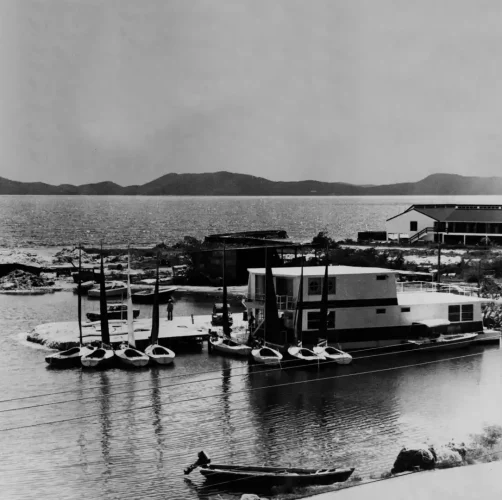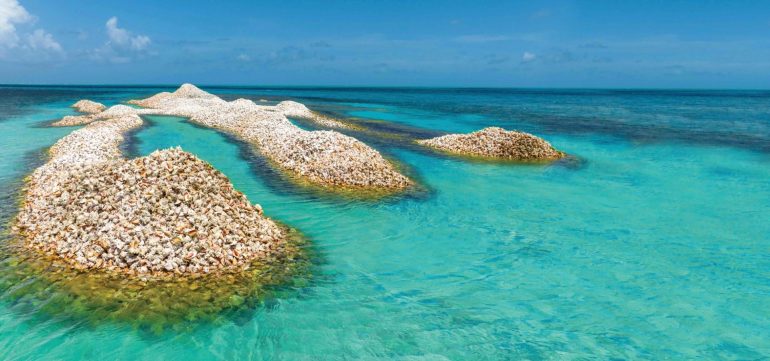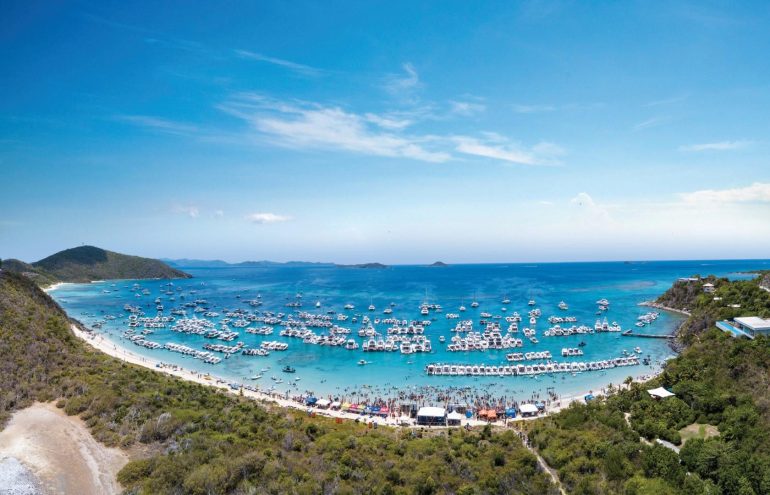DNA Detection to Deter Dinghy Thieves
Hands up anyone who's had their dinghy stolen. Wow, so many! So hands up anyone who's ever said, a propos of said thefts, “Why doesn't someone do something?” News for you—aggressive action is about to be unleashed. Launched to catch the buzz of the BVI Spring Regatta, a new BVI Police initiative harnesses off-the-shelf technology in a creative way to thwart the designs of thieves who have been living quite brazenly off the charter industry. No, casual theft is not the same as Somali piratery, but it is awfully annoying when it's your dinghy that got stolen. Particularly when you are trapped aboard with a half-dozen squirmy guests and no alternative other than swimming.
The Marine Marking Initiative, as it is known, will allow operators to register their property with the Royal BVI Police who will covertly and overtly (secretly and obviously to you) mark outboard motors, dinghies, electronic gear and any other equipment the owner chooses. Utilising technologies ranging from “synthetic DNA” to Radio Frequency Identification (RFID) tags to ultra-violet light sensitive inks and gels, these identifying marks will be linked to individual hull identification numbers (HINs) which comprise the basic data for vessel registration.

If the police should have suspicions regarding a certain item, the RFID tag and UV markings will identify the property as belonging to a particular vessel which in turn will be associated with a charter company, or individual operator. RFID tags have the added advantage of being readable from some distance away. If an operator chooses to sell a particular dinghy or piece of equipment, the new owner can simply pay for a new registration and all data would then point to that owner. For a cost of $65, the MMI will allow an operator to register up to 50 marks—say, 25 items.
Information provided by the BVI Police identifies the equipment supplier as Selectamark Security Systems, PLC. This British company supplies an assortment of crime-prevention and detection materials, including what the company calls synthetic DNA, which is applied to objects that are likely to attract thieves. Any person handling the object will end up with some of this DNA marker adhering to his skin or to clothing and which the company claims is nearly impossible to remove. The DNA material contains microdots which are imprinted with codes indicating the registration data of the original equipment. This DNA material will glow under UV lighting and can be quickly identified by use of a special torch. Additionally, subscribers to this security system will be provided with signage which clearly informs potential thieves of the measures in place. The company claims that their system has proven very effective in deterring thefts in the UK. A spokesperson for the BVI Police told YG that “this will be the first time all products have been linked together in a complete holistic initiative in the marine environment anywhere in the world. UK Police Forces…are very keen to hear about the initiative.”
The Police announcement quotes Reynell Fraser, the Police Commissioner of the Royal Virgin Islands Police Force, as saying, “Marine equipment will no longer be as valuable to the criminal as it will bear permanent markings which can be easily spotted by any law enforcement officer. It is virtually impossible to remove the markings and any attempt would seriously deface and devalue the items for resale.”
The announcement identifies TMM Yacht Charters as “the charter company who are leading the theft reduction initiative, and they have already marked 50 charter yachts ahead of the launch. The company plans to mark other boats at their bases in Belize and St Vincent and the Grenadines Meanwhile, other charter yacht companies and marinas have already expressed their interest in joining the initiative as soon as possible.”
The partners in the initiative are The Royal Virgin Islands Police Force (RVIPF), The British Virgin Islands Tourist Board, The Marine Association, The Charter Yacht Society and Crime Stoppers BVI.
Now, if they could only persuade some BVI parents to take responsibility for their wayward children, we might see a virtual cessation of dinghy theft altogether.





